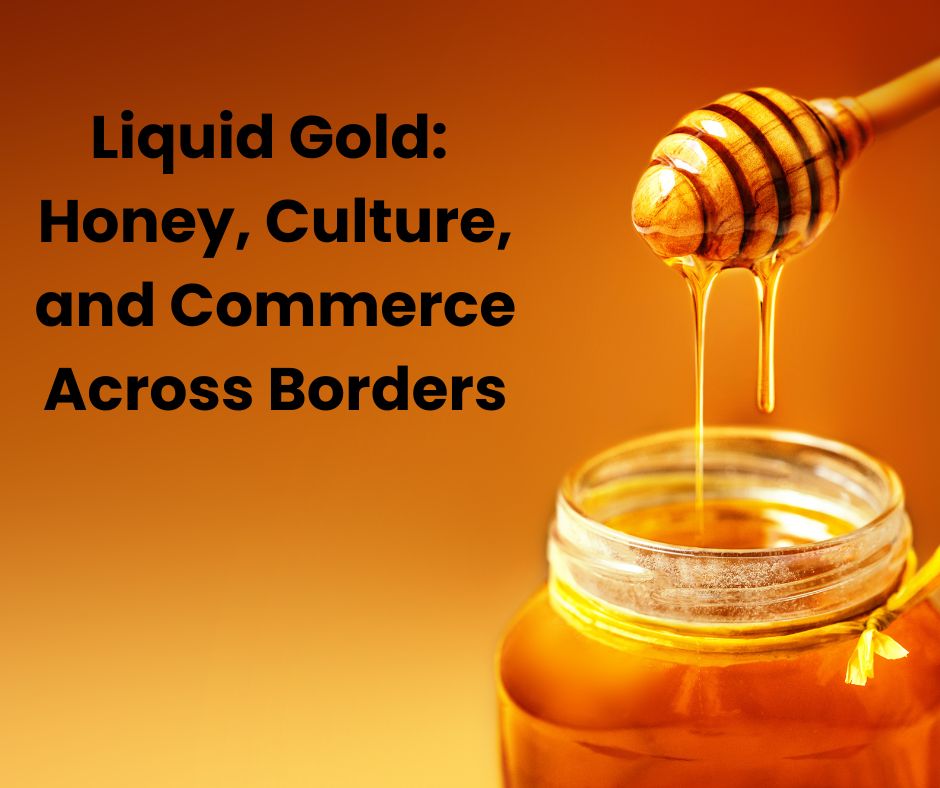Liquid Gold: Honey, Culture, and Commerce Across Borders

Pollinators’ contributions extend beyond crop yields; they also produce honey, a product that combines economic value, cultural significance, and ecological insight. Often called “liquid gold,” honey reflects the health of the ecosystems from which it comes and the skill of those who cultivate it.
Global Trade in Honey
· Major producers – Australia, New Zealand, and the European Union lead the production of high-quality honey for both domestic and export markets.
· Quality determinants – The flavour, texture, and nutritional content of honey depend on terroir, floral origin, and biodiversity, making it a sensitive indicator of ecological health.
· Trade requirements – Exporting honey requires strict adherence to biosecurity protocols, certification processes, and quality assurance, ensuring both product integrity and the protection of pollinator populations.
Honey illustrates how ecological health underpins commerce and culture alike. The protection of pollinators is therefore not just a matter of agriculture—it is a global responsibility linking communities, economies, and heritage.
The Hum That Sustains Us
Bees may be small, but their influence is immense. From pollination to honey production, they sustain ecosystems, stabilize food systems, and underpin international trade.
The 2026 Festival of Inclusive Trade celebrates this interconnectedness through the Bee Series, highlighting the inseparable links between ecological stewardship, climate resilience, and inclusive economic prosperity.
The hum of the hive serves as a reminder that every flower visited, every seed pollinated, and every hive maintained contributes to a web of life that supports billions of people worldwide.
Caring for pollinators is more than an environmental choice—it is a deliberate investment in the security, culture, and economic resilience of communities everywhere. The future of food, trade, and biodiversity depends on the careful stewardship of these indispensable creatures.